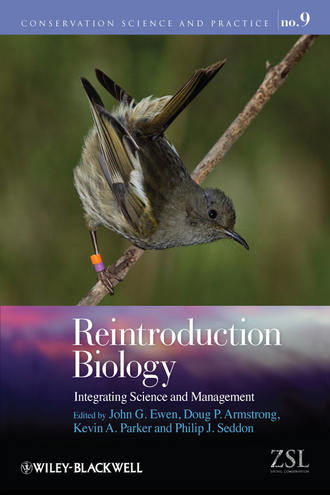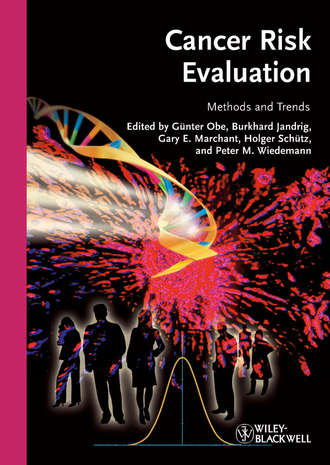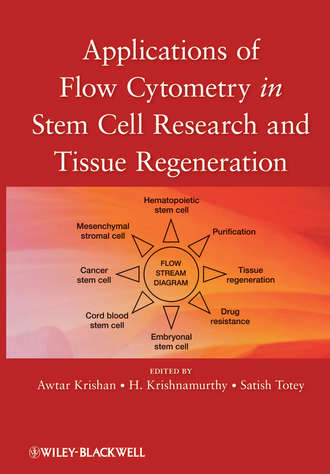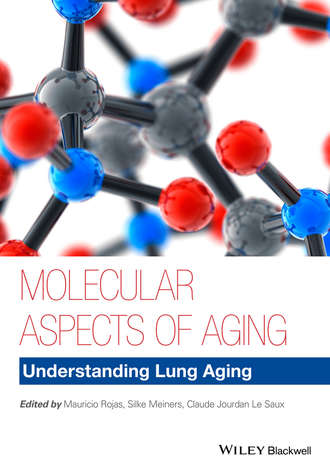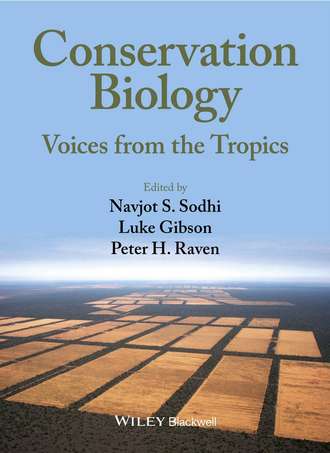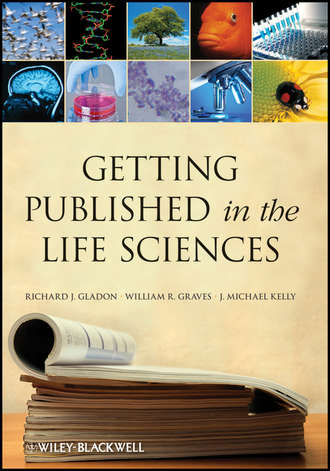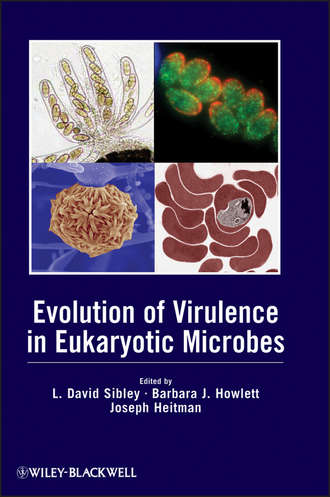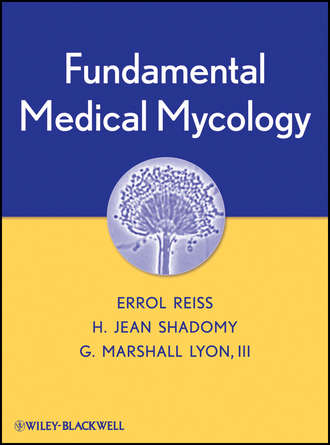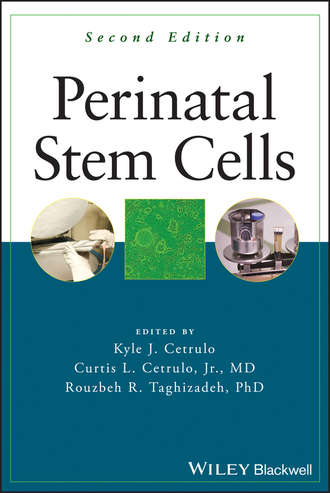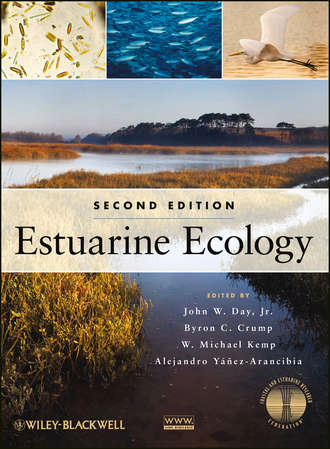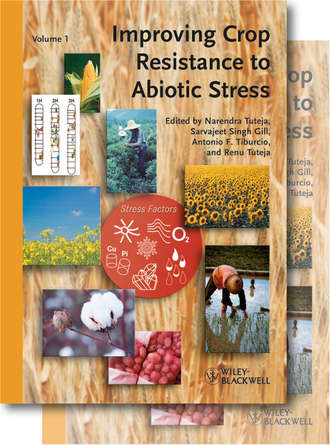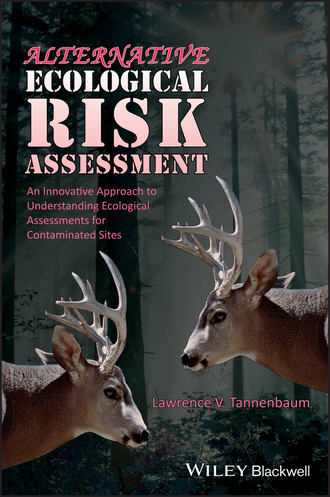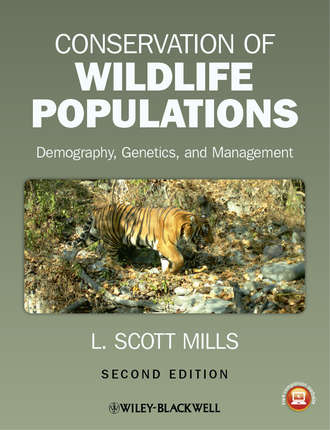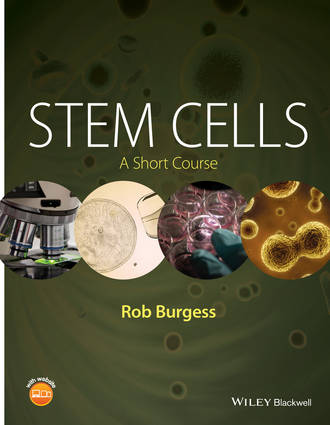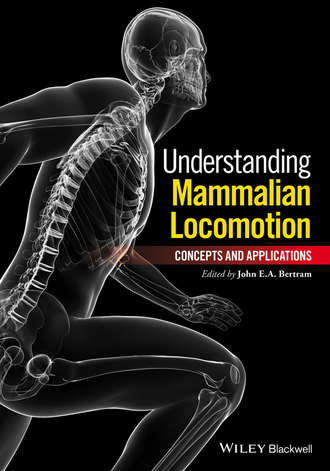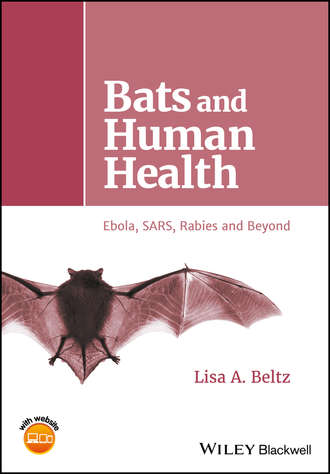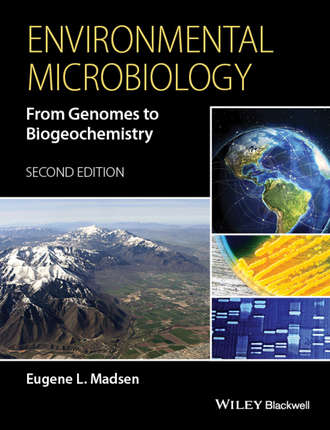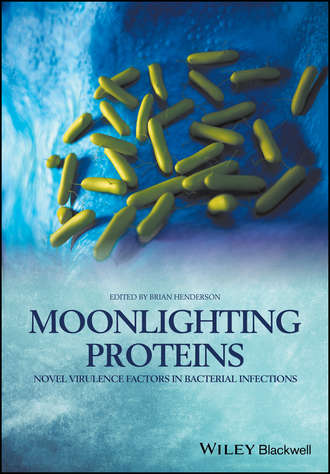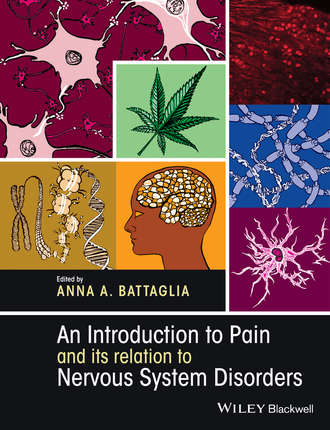общая биология
Reintroduction Biology
Группа авторов
This book aims to further advance the field of reintroduction biology beyond the considerable progress made since the formation of the IUCN/SSC Re-introduction Specialist Group. Using an issue-based framework that purposely avoids a structure...
Cancer Risk Evaluation
Группа авторов
An overview of the different approaches to cancer risk assessment of environmental factors – including «-omics» technologies, discussing the strengths and weaknesses of the methods in different fields. The main focus is on the carcinogenic...
Women in the Geosciences
Группа авторов
Read an interview with the author: «Working Toward Gender Parity in the Geosciences» The geoscience workforce has a lower proportion of women compared to the general population of the United States and compared to many other STEM fields. This...
Applications of Flow Cytometry in Stem Cell Research and Tissue Regeneration
Группа авторов
A much-needed primer on the use of laser flow cytometry for stem cell analysis Laser flow cytometry is a powerful tool for rapid analysis of cells for marker expression, cell cycle position, proliferation, and apoptosis. However, no resources...
Ethnobiology
Группа авторов
The single comprehensive treatment of the field, from the leading members of the Society of Ethnobiology The field of ethnobiology—the study of relationships between particular ethnic groups and their native plants and animals—has grown very...
Central European Stream Ecosystems
Группа авторов
Probably the best-studied stream on earth. The result of unmatched long-term data taken by the Max-Planck outstation in Schlitz from the nearby Breitenbach stream since 1949, the special focus in this handbook and ready reference is on animal...
NMR of Biomolecules
Группа авторов
NMR is one of the most powerful methods for imaging of biomolecules. This book is the ultimate NMR guide for researchers in the biomedical community and gives not only background and practical tips but also a forward looking view on the future...
Molecular Aspects of Aging
Mauricio Rojas
Molecular Aspects of Aging: Understanding Lung Aging covers recent research in the mechanisms that contribute to cellular senescence. Covering universal themes in aging, such as the exhaustion of stem cells and subsequent loss of the...
Conservation Biology
Группа авторов
The late Navjot Sodhi conceived this book as a way of bringing to the forefront of our conservation planning for the tropics the views of people who were actually working and living there. In its 31 chapters, 55 authors present their views on...
Getting Published in the Life Sciences
Richard J. Gladon
The goal of this book is to make it easier for scientists, especially those new to scientific writing, to write about their results and to get their manuscripts accepted in peer-reviewed journals. The book covers each step throughout the...
Recent Advances in Polyphenol Research, Volume 3
Группа авторов
Plant polyphenols are secondary metabolites that constitute one of the most common and widespread groups of natural products. They express a large and diverse panel of biological activities including beneficial effects on both plants and humans....
Evolution of Virulence in Eukaryotic Microbes
Группа авторов
A unique and timely review of the emergence of eukaryotic virulence in fungi, oomycetes, and protozoa, as they affect both animals and plants Evolution of Virulence in Eukaryotic Microbes addresses new developments in defining the molecular...
Conservation and the Genetics of Populations
Fred W. Allendorf
Loss of biodiversity is among the greatest problems facing the world today. Conservation and the Genetics of Populations gives a comprehensive overview of the essential background, concepts, and tools needed to understand how genetic information...
Scale-Sensitive Governance of the Environment
Группа авторов
Sensitivity to scales is one of the key challenges in environmental governance. Climate change, food production, energy supply, and natural resource management are examples of environmental challenges that stretch across scales and require...
Historical Environmental Variation in Conservation and Natural Resource Management
John A. Wiens
In North America, concepts of Historical Range of Variability are being employed in land-management planning for properties of private organizations and multiple government agencies. The National Park Service, U.S. Fish & Wildlife Service,...
Fundamental Medical Mycology
Errol Reiss
Medical mycology deals with those infections in humans, and animals resulting from pathogenic fungi. As a separate discipline, the concepts, methods, diagnosis, and treatment of fungal diseases of humans are specific. Incorporating the very...
Perinatal Stem Cells
Группа авторов
Perinatal Stem Cells, 2nd Edition builds on the first edition to provide an updated tutorial on perinatal stem cells, including stem cells harvested from the amniotic fluid, placenta, maternal blood supply, umbilical cord and Wharton's Jelly. As...
Estuarine Ecology
Группа авторов
Estuaries are among the most biologically productive ecosystems on the planet–critical to the life cycles of fish, other aquatic animals, and the creatures which feed on them. Estuarine Ecology, Second Edition, covers the physical and chemical...
Vaccines and Autoimmunity
Группа авторов
In light of the discovery of Autoimmune Syndrome Induced by Adjuvants, or ASIA, Vaccines and Autoimmunity explores the role of adjuvants – specifically aluminum in different vaccines – and how they can induce diverse autoimmune clinical...
Recent Advances in Polyphenol Research, Volume 2
Группа авторов
Recent Advances in Polyphenol Research Volume 2 Edited by Santos-Buelga, Escribano-Bailon and Lattanzio Plant phenolics are secondary metabolites that constitute one of the most common and widespread groups of substances in plants. Polyphenols...
Improving Crop Resistance to Abiotic Stress
Группа авторов
The latest update on improving crop resistance to abiotic stress using the advanced key methods of proteomics, genomics and metabolomics. The wellbalanced international mix of contributors from industry and academia cover work carried out on...
Improving Crop Productivity in Sustainable Agriculture
Группа авторов
An up-to-date overview of current progress in improving crop quality and quantity using modern methods. With a particular emphasis on genetic engineering, this text focusses on crop improvement under adverse conditions, paying special attention...
Photosynthesis in the Marine Environment
Mats Bj?rk
"Marine photosynthesis provides for at least half of the primary production worldwide…" Photosynthesis in the Marine Environment constitutes a comprehensive explanation of photosynthetic processes as related to the special environment in which...
Culture of Animal Cells
R. Ian Freshney
Since the publication of the sixth edition of this benchmark text, numerous advances in the field have been made – particularly in stem cells, 3D culture, scale-up, STR profiling, and culture of specialized cells. Culture of Animal Cells: A...
Photosynthesis
Группа авторов
Photosynthesis is one of the most important processes that affects all life on Earth, and, even now in the twenty-first century, it is still being studied and tested by scientists, chemists, and botanists. Regardless of politics or opinion,...
Alternative Ecological Risk Assessment
Lawrence V. Tannenbaum
In Alternative Ecological Risk Assessment the author, Lawrence V. Tannenbaum, provides a critical review of current practices in the ecological risk assessment field and proposes alternatives that are supported by established science and keen...
Conservation of Wildlife Populations
L. Scott Mills
Population ecology has matured to a sophisticated science with astonishing potential for contributing solutions to wildlife conservation and management challenges. And yet, much of the applied power of wildlife population ecology remains...
Ecological Challenges and Conservation Conundrums
John A. Wiens
Short, compelling, but mostly thought-provoking essys that encompass many of the central issues shaping ecology and conservation in the changing world Collected essays from one of the best known ecologists and conservationists in the world...
Arsenic
J. Christopher States
This book illustrates the chemistry, toxicology, and health effects of arsenic using novel modeling techniques, case studies, experimental data, and future perspectives. • Covers exposure sources, health risks, and mechanisms of one of the most...
Amyloid Fibrils and Prefibrillar Aggregates
Группа авторов
Summing up almost a decade of biomedical research, this topical and eagerly awaited handbook is the first reference on the topic to incorporate recent breakthroughs in amyloid research. The first part covers the structural biology of amyloid...
Fungi
Группа авторов
This newly updated edition covers a wide range of topics relevant to fungal biology, appealing to academia and industry Fungi are extremely important microorganisms in relation to human and animal wellbeing, the environment, and in industry. The...
Human Drug Targets
Edward D. Zanders
The identification of drug targets in a given disease has been central to pharmaceutical research from the latter half of the 20th century right up to the modern genomics era. Human Drug Targets provides an essential guide to one of the most...
Management of Marine Protected Areas
Группа авторов
With the health of the world’s oceans threatened as never before, it is becoming increasingly apparent that Marine Protected Areas (MPAs) play a vitally important role in protecting marine and coastal habitats. Management of Marine Protected...
Stem Cells
Rob Burgess
Stem Cells: A Short Course is a comprehensive text for students delving into the rapidly evolving discipline of stem cell research. Comprised of eight chapters, the text addresses all of the major facets and disciplines related to stem cell...
Bio-Nanoparticles
Группа авторов
Nanoparticles are the building blocks for nanotechnology; they are better built, long lasting, cleaner, safer, and smarter products for use across industries, including communications, medicine, transportation, agriculture and other industries....
Translational Medicine
Группа авторов
The first complete overview of progress in the field. The two volumes contain selected articles from the prestigious online Encyclopedia of Molecular Cell Biology and Molecular Medicine, fully updated and enriched with numerous new contributions...
Understanding Mammalian Locomotion
John E. A. Bertram
Understanding Mammalian Locomotion will formally introduce the emerging perspective of collision dynamics in mammalian terrestrial locomotion and explain how it influences the interpretation of form and functional capabilities. The objective is...
Forensic Science
Douglas H. Ubelaker
Co-published with the American Academy of Forensic Sciences, Forensic Science presents comprehensive international discussion of key issues and future directions within the forensic sciences. Written by accomplished and respected specialists in...
Bats and Human Health
Lisa A. Beltz
An important resource that reviews the various infectious diseases that affect bats and bat populations Bats and Human Health: Ebola, SARS, Rabies and Beyond covers existing literature on viral, bacterial, protozoan, and fungal infections of...
Welt der Bakterien, Archaeen und Viren
Gerhard Gottschalk
Zeitgema?es Wissen in Lekture- und in Lehrbuchform. Gerhard Gottschalk vermittelt die Mikrobiologie in ihrer ganzen Breite. In 12 Teilen mit jeweils mehreren Kapiteln wird die Mikrobiologie dem Leser auf sehr verstandliche Weise nahergebracht....
Food Webs and Biodiversity
Axel G. Rossberg
Food webs have now been addressed in empirical and theoretical research for more than 50 years. Yet, even elementary foundational issues are still hotly debated. One difficulty is that a multitude of processes need to be taken into account to...
Environmental Microbiology
Eugene L. Madsen
New and expanded for its second edition, Environmental Microbiology: From Genomes to Biogeochemistry? Second Edition, is a timely update to a classic text filled with ideas, connections, and concepts that advance an in-depth understanding of...
Live Cell Assays
Christophe Furger
Cell assays include all methods of measurements on living cells. Confined for a long time to research laboratories, these emerging methods have, in recent years, found industrial applications that are increasingly varied and, from now on,...
Climate Change
Philippe de Larminat
Under certain scenarios on the subject of CO2 emissions, by the end of the century the atmospheric concentration could triple its pre-industrial level. The very large numerical models intended to anticipate the corresponding climate evolutions...
Off-label Prescribing
David Cavalla
Today’s medicines are regulated for their efficacy and safety and, once approved, they can be marketed for certain uses as justified by the data. Regulatory bodies in developed countries are constituted by legal statute and operate as parts of...
Moonlighting Proteins
Группа авторов
Moonlighting Proteins: Novel Virulence Factors in Bacterial Infections is a complete examination of the ways in which proteins with more than one unique biological action are able to serve as virulence factors in different bacteria. The book...
Avian Evolution
Gerald Mayr
Knowledge of the evolutionary history of birds has much improved in recent decades. Fossils from critical time periods are being described at unprecedented rates and modern phylogenetic analyses have provided a framework for the...
Pathology for Toxicologists
Группа авторов
Non-pathologists, such as toxicologists and study personnel, can find it difficult to understand the data they receive from pathologists. Toxicological pathologists write long, detailed and highly technical reports. Study personnel are under...
Ecological Parasitology
Gerald W. Esch
Professor Gerald Esch has already published two books in what is becoming an informal series of essays exploring the way that discoveries about the biology of parasites have influenced ecological and evolutionary theories over a career that has...
An Introduction to Pain and its relation to Nervous System Disorders
Группа авторов
Introduction to Pain and its relation to Nervous System Disorders provides an accessible overview of the latest developments in the science underpinning pain research, including, but not limited to, the physiological, pathological and...
